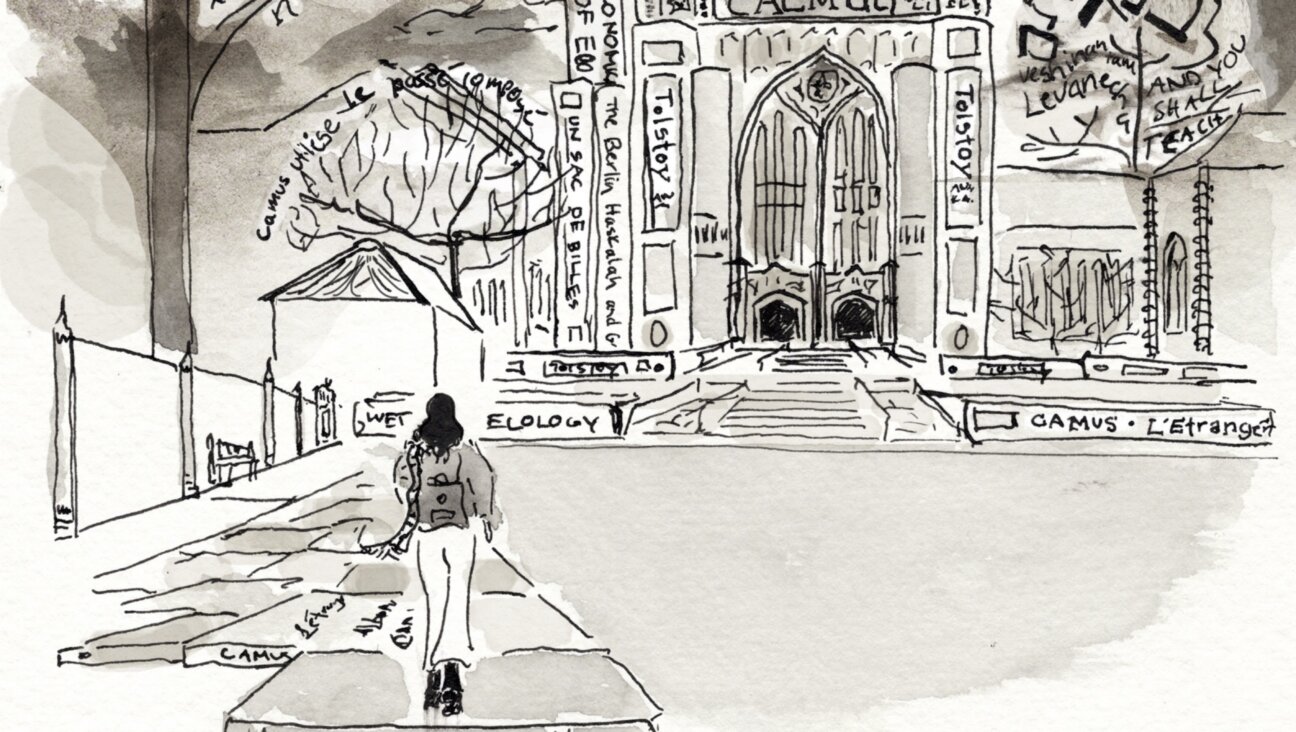Breaking Sacred Ground for Equality
On June 20, the second day of Rosh Chodesh Tammuz, ultra-Orthodox women physically and verbally attacked a group of religious women praying at the Western Wall in Jerusalem. This was not a spontaneous demonstration of hatred, but rather a calculated action to prove to the Israeli Supreme Court that the prayers of the Women of the Wall, or WOW, lead to a disturbance at Judaism’s holiest site.
WOW has recently prayed twice with a Torah scroll at the Western Wall. Their non-minyan group prayers in the women’s section did not cause a riot and proceeded quite peacefully. Indeed, earlier this month, WOW tried to make this point in the Israeli Supreme Court. WOW’s opponents, perhaps fearful of a ruling against them, obviously decided to use violence to enforce their view of the status quo.
The main agitator at the Wall, according to WOW members, was a woman from the coastal town of Netanya named Shira Leibowitz Schmidt, who was present at WOW’s recent hearing in the Israeli Supreme Court. On June 20, Schmidt suddenly appeared at the Wall and tried to take away WOW’s Torah by force. According to WOW leader and cantor Rahel Jaskow, “we had to hang on to our Torah with all our might to prevent her from taking it. When we challenged her, all she would say was, ‘This is not minhag hamakom,’” or local custom — that women praying with a Torah scroll is disrespectful of Judaism’s holiest site.
At first, the police refused to get involved. One officer only smiled as the melee began. Another responded belligerently, even mockingly, to WOW’s request for protection. Eventually, a female police officer came and moved Schmidt away. That’s when Schmidt began the next phase of her campaign: approaching ultra-Orthodox, or haredi, women at the Kotel and stirring them up against WOW.
According to Jaskow, haredi women then “did everything they could to disrupt” the prayer service. They screamed, hooted, ululated, taunted and mocked WOW. One haredi woman slapped a member of WOW, another threw stones. (We do not know whether the police have arrested either the offenders.) Meanwhile, Schmidt again tried to physically break through WOW’s circle to wrest the group’s Torah away from them. Haredi women accused WOW of being “Reformim,” a serious insult among the observant in Israel; demanded that WOW go to an egalitarian site off to the side of the Western Wall complex to perform their “tiflah,” or foolishness; and accused WOW of being “impure” and of “endangering Judaism.” Accompanying WOW were women from Yale, Harvard and New York Universities, as well as from Hadassah, the women’s Zionist organization. One young woman wept.
Bravely, steadfastly, WOW continued with their prayers while the haredi women continued to shout and taunt them. Some haredi men began roaring on the other side of the mehitza, the separation wall between the men’s and women’s sections.
WOW leaders Danielle Bernstein and Rahel Jaskow feared that “once the haredi women saw the Torah they would go completely out of control and try to destroy it physically.” But the group remained focused, and decided to read the Torah portion from a prayer book. Haviva Ner-David, a teacher and author from Jerusalem, delivered a sermon about Korach’s rebellion over the shouts and taunts of the haredi women.
The fact that such intolerant, cruel and violent behavior was expressed by women against women is not surprising.
Like men, women are only human beings — as close to the apes as to the angels, capable of both cruelty and compassion, envy and generosity, competition and cooperation. Like men, women internalize sexist values. Like men, many women cling to the status quo, even to one which demeans and restricts them.
The patriarchal society in which we live specifically trains and expects women to keep other women in line; the punishments for failing to do so are considerable. A recent survey in Egypt reveals that seven out of 10 women believe female genital mutilation is justified. A survey of 500 women in England reveals that one-third believe male domestic violence was acceptable. In India, the practice of a mother-in-law dousing her daughter-in-law with kerosene to obtain more dowry money from the next daughter-in-law goes on to this day. And a psychologist-researcher in the United States has found that women who are hostile to other women don’t feel good about themselves, and have lower personal self-esteem, optimism, sense of self-efficacy and life-satisfaction.
Unfortunately, to judge by the shameful June 20 incident at the Western Wall, such inhumane behaviors and attitudes also exist among Jewish women.
The fact that such a riot was orchestrated to occur shortly before Jews enter the time of mourning for the destruction of the Temples and the subsequent exiles is profoundly unsettling and sobering. One must ask whether such violent and Jew-hating behavior connotes awe for God — which the word “haredi” suggests — or is, rather, a form of rebellion and contempt for both God and humanity.
Phyllis Chesler is a co-founder of the International Committee for Women of the Wall and the co-author, together with Rivka Haut, of “Women of the Wall: Claiming Sacred Ground at Judaism’s Holy Site” (Jewish Lights, 2003).
















